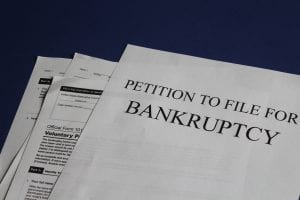Consider your options carefully, and work with a qualified lawyer to figure out how you can keep most of your things.
Philadelphia, PA – Finding yourself forced to file for bankruptcy is never a pleasant situation. Bankruptcy is typically associated with all sorts of negative traits and social stigma, which is why it’s important to exhaust all other options before filing.
What can you do? If you’re unsure if filing for bankruptcy is the right course of action for you, you might benefit from talking to experienced lawyers. Whether acting as an individual or as a business entity, try to reduce costs, negotiate lower-interest loans, and explore other options first.
If you’ve done all of these things, and filing for bankruptcy is your only remaining option, do not despair. Bankruptcy laws are actually designed in such a way as to give the debtor a fresh start, not to bring shame and suffering to them.
Below, we answer some of the most common questions that our Philadelphia bankruptcy lawyers receive from prospective clients, to help you make the right decision.
- How long do I have to live in Pennsylvania to qualify for state bankruptcy laws?
It’s worth noting that the process of filing for bankruptcy falls under federal, and not state law. However, to be able to use the many exemptions offered under Pennsylvania’s bankruptcy law, you have to have been a resident in the state for at least 91 days of the previous 180 days.
- Do I need to undergo credit counseling?
Credit counseling is a process that should help educate debtors about their options. Basically, attending credit counseling ensures you’ve exhausted all other methods of settling your debts. Yes, according to Pennsylvania law, it’s mandatory that you undergo credit counseling before filing for bankruptcy. Generally, credit counseling courses entail a small fee, and must be approved by the Department of Justice, in order to be recognized in court.
- How long should I wait to file for bankruptcy?
The good news is, you don’t need to wait any time at all before filing for bankruptcy. However, Pennsylvania bankruptcy lawyers warn that if you have received another bankruptcy discharge in the past two years, you will not be eligible for filing. Instead, you must wait out the two-year waiting period between filing again.
- Should I opt for Chapter 7 or Chapter 13 bankruptcy?
Pennsylvania allows individuals filing for bankruptcy to pick between Chapter 7 (immediate liquidation of assets) or Chapter 13 (pre-set payment plan over several years) bankruptcy. The first is quicker but will require you to sell a considerable amount of your property to pay debts. Be warned that individuals who earn significant wages are ineligible for Chapter 7 filing.

Alternatively, you can opt for Chapter 13, which allows you to keep all of your property, provided you can fulfill monthly payments toward your creditors. Filing for Chapter 13 bankruptcy also has its eligibility markers: you can not have more than $1,184,200 in secured debts and $394,725 in unsecured debts.
- Should you file with your spouse?
If you are married, you have the option of filing jointly for bankruptcy or individually. Only qualified Philadelphia bankruptcy lawyers will be able to advise you on which is best, in your case. However, filing for bankruptcy with a spouse will double the property amount that is exempt (can’t be sold or repossessed).
Consider your options carefully, and work with a qualified lawyer to figure out how you can keep most of your things.


Join the conversation!